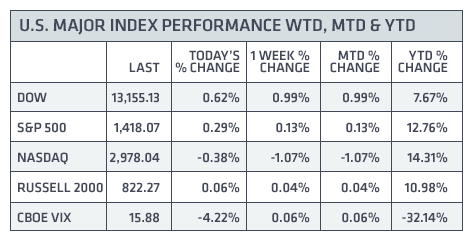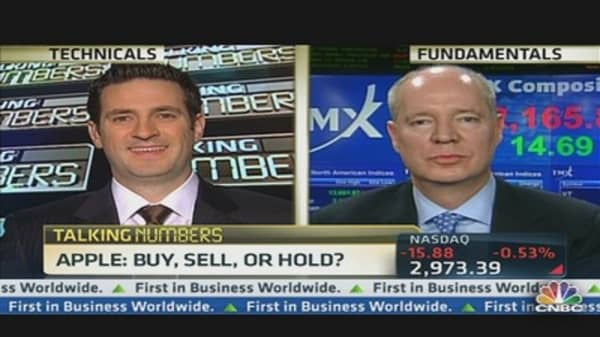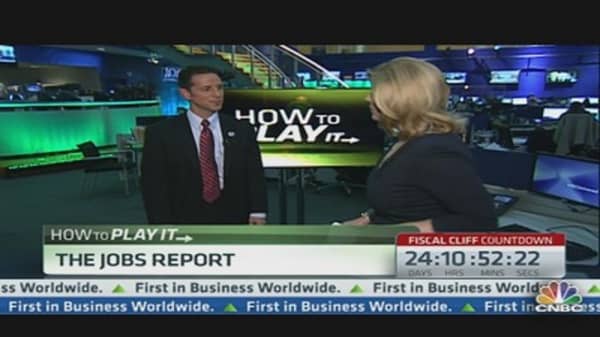Meanwhile, the consumer sentiment index tumbled to 74.5 from 82.7 in a preliminary December, according to the Thomson Reuters/University of Michigan Survey, amid worries over the potential for higher taxes. Economists in a Reuters survey expected a reading of 82.4. (Read More: The Economy Next Year—A Little Growth, a Few More Jobs)
Netflix traded higher even after the online movie-streaming company disclosed that CEO Reed Hastings received a Wells Notice from the SEC related to a blog post he wrote on Facebook in July. Meanwhile, Hastings said he is optimistic the action can be "cleared up quickly."
Jefferies announced it is moving its first-quarter dividend payment to December, while D.R. Horton accelerated all of its 2013 dividend payments into 2012. Late Thursday, publishing company McGraw-Hill and hospital operator HCA became the latest companies to declare special dividends. So far, more than 170 companies have accelerated or announced special dividends in the fourth quarter.
McDonald's edged higher after Janney raised its rating on the fast-food giant to "buy" from "neutral." Meanwhile, Yum Brands slipped after RBC cut its price target on the parent company of Taco Bell and KFC to $77 from $82.
Semiconductor designer LSI announced it will switch to the Nasdaq OMX's exchange from the NYSE, effective December 19. The company's ticker symbol will remain unchanged.
European shares finished narrowly mixed as gains were limited after Germany's central bank cut its growth outlook for the economy next year and amid worries about political uncertainty in Italy.
Consumer credit rose $14.2 billion in October, according to the Federal Reserve, topping expectations for a gain of $10 billion.






